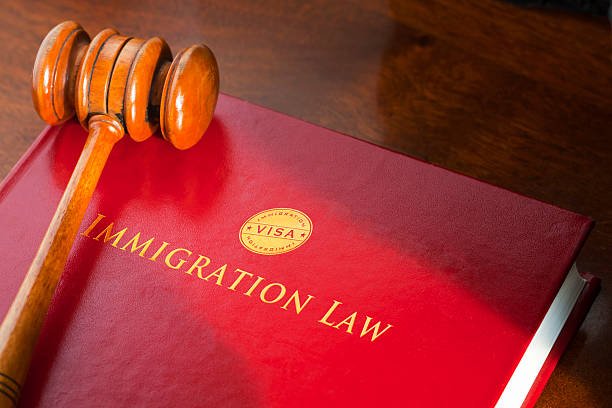How to Understand UK Immigration Laws In 2023

How to Understand UK Immigration Laws In 2023? The United Kingdom has a well-defined immigration system that ensures the entry of individuals who can contribute positively to the country’s economy and society. To successfully navigate the immigration process, it is crucial to have a clear understanding of the UK immigration laws and regulations.
Understanding the UK Immigration System
The UK operates a Points-Based System (PBS) for managing immigration. This system evaluates applicants based on specific criteria and assigns points accordingly. Understanding the PBS is essential to comprehend the various immigration categories available.
Points-Based System

The Points-Based System consists of different tiers, each catering to specific types of applicants. The system considers factors such as age, English language proficiency, qualifications, and sponsorship. Meeting the required points threshold is crucial for a successful immigration application.
Immigration Categories
The UK offers several immigration categories, including Tier 1 for highly skilled workers, Tier 2 for skilled workers with job offers, Tier 4 for students, and Tier 5 for temporary workers. Each category has its own set of eligibility criteria and requirements.
Eligibility Criteria
To apply for a UK visa, you must meet the eligibility criteria for the desired immigration category. Here are some key categories and their requirements:
Tier 1 – Highly Skilled Workers

Tier 1 is designed for individuals with exceptional talent, entrepreneurs, investors, and those endorsed as global leaders. The requirements for Tier 1 include demonstrating exceptional talent in fields such as science, arts, engineering, or being a high net worth individual.
Tier 2 – Skilled Workers
Tier 2 is for skilled workers who have a job offer from a UK employer with a valid sponsor license. The employer must provide a Certificate of Sponsorship (CoS), and the job offer must meet specific skill and salary requirements.
Tier 4 – Students
Tier 4 is for individuals who wish to study in the UK. To be eligible, you must have an offer from a recognized educational institution, demonstrate proficiency in English, and show evidence of financial capability to support your studies and living expenses.
Tier 5 – Temporary Workers
Tier 5 allows individuals to come to the UK for temporary work assignments, including charity work, creative and sporting activities, and government-authorized exchange programs. Each subcategory has specific requirements and restrictions.
Required Documents
When applying for a UK visa, you will need to provide various supporting documents to validate your eligibility. The required documents may include:
Passport and Travel Documents
A valid passport or travel document is essential for entry into the UK. It should have at least six months of validity remaining.
English Language Proficiency

Applicants may need to demonstrate their English language proficiency through recognized tests such as the International English Language Testing System (IELTS).
Read More: 10 Easy Ways For Pedestrians Cross the Road
Proof of Financial Capability
You must prove that you have sufficient funds to cover your living expenses and any applicable visa fees during your stay in the UK.
Tuberculosis Test Certificate
Depending on your country of residence, you may be required to undergo a tuberculosis test and provide a valid certificate.
Application Process
The application process for a UK visa involves several steps. Here is a brief overview:
Online Application
Most visa applications are submitted online through the UK government’s official website. You will need to create an account, complete the application form, and pay the relevant fees.
Biometric Residence Permit
After submitting your application, you will be required to visit a visa application center to provide your biometric information, including fingerprints and a photograph. This information is used to issue your Biometric Residence Permit (BRP).
Sponsorship
Sponsorship plays a vital role in certain immigration categories. Employers and educational institutions can sponsor individuals, allowing them to work or study in the UK. Here are two common types of sponsorship:
Employer Sponsorship
If you have a job offer from a UK employer, they must be a registered sponsor to issue a Certificate of Sponsorship (CoS) for your application.
Educational Institution Sponsorship
To study in the UK, you may need to secure a place at a recognized educational institution. The institution will provide you with a Confirmation of Acceptance for Studies (CAS), which is required for your Tier 4 student visa application.
Visa Fees and Processing Times
Visa fees vary depending on the immigration category and the duration of your stay. Processing times can also vary, so it is advisable to submit your application well in advance of your intended travel date.
Rights and Responsibilities
Once you are granted a UK visa, it is essential to be aware of your rights and responsibilities. Familiarize yourself with the terms and conditions of your visa, including your ability to work, study, or access healthcare services.
Changes to Immigration Laws in 2023
It is important to stay updated on any changes to UK immigration laws, as they can impact the application process and eligibility criteria. In 2023, certain amendments and revisions are expected, so it is advisable to consult official government sources for the most recent information.
Conclusion
Understanding UK immigration laws is crucial for a successful visa application and a smooth transition to living in the country. By following the outlined guidelines and staying informed about any updates, you can navigate the process with confidence and make informed decisions.











